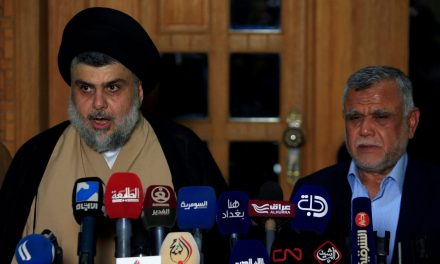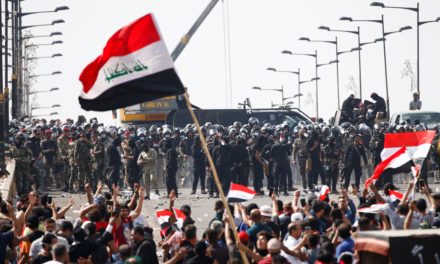(American University of Iraq – Sulaimani Campus. Diyar se/Flickr)
The American-led invasion of Iraq in 2003 culminated in a brisk victory, followed by the long, painful, and infamous occupation of the Middle Eastern nation. While most of the media focused on coalition operations and casualties, few Westerners knew of the events unfolding in Iraqi education.
John Agresto, who served as the Senior Advisor to the Ministry of Higher Education and Scientific Research between August 2003 and June 2004, faced the challenges of stabilizing Iraq’s higher education system in the aftermath of America’s invasion. Across the country, campuses were looted, burned, and vandalized. Classrooms and dorms were transformed into epicenters for extremism, and on-campus murders were not uncommon.
Amidst this climate of violence and devastation, Agresto successfully collaborated with the locals in one Iraqi region in his endeavor to implement positive education reform. The Kurdistan Region of Iraq became a center of security and educational growth during the Iraq War. Almost immediately after Agresto’s appointment to the Ministry in 2003, Kurdish leaders began to develop plans to build American-style universities across the region. Over the next decade, more than 13 universities, both public and private, were established across Kurdistan Region. As time progressed, significant improvements were made to address the challenges of student capacity. Dlawer Ala’Aldeen, the Minister of Higher Education between 2009-2012, pushed further legislation in order to improve Kurdistan’s quality of higher education.
In spite of Kurdistan Region’s commitment to reform, the higher education sector faces immense challenges, including salary cuts, corruption, and partisan politics. As the higher education system continues to find footing in northern Iraq, one trend remains clear: an increasing demand and interest in the English language.
Today: My Experience
During my time in the Kurdistan Region, I noticed a few distinct trends in the education sector. The most obvious circumstantial reality faced in Kurdish higher education is the mismatch between education policy and market needs. English is regarded as highly important and market-relevant, but the quality of English programs needs to be addressed.
At my university, our team at the Language & Development Center worked hard to increase the quality of the English programs that we offered. We redesigned ESL curricula, built a state-of-the-art English language lab, and incorporated new technology into the classrooms. These improvements significantly strengthened the quality of the English programs we delivered, and I hope other universities will try to implement similar improvements.
Today: My Observations
Daily discussions and experiences, both within the classroom and in the community beyond, have revealed a handful of major reasons behind the increasing interest in the English language and demand for ESL programming.
1. An interest in studying abroad – Included in the previously mentioned reforms, the regional government invested $400 million to send talented graduates abroad. Graduates were selected and sent to prestigious universities across the western world, where they were introduced to western pedagogy and culture. Furthermore, foreign governments have developed programs that recruit even more students to institutes abroad, most notably the Fulbright Scholarship (USA) and Chevening Scholarship (UK). With increasing opportunity to study at English-language institutions, local English curriculum maintains its importance and appeal.
2. Further studies in Kurdistan Region – For masters and doctoral candidates, there is a relatively new requirement in English proficiency: Candidates must score a 5 or 6 on the IELTS English exam before they begin their continuing education. Many new English centers and programs were opened in 2017 in order to meet this need.
3. Employability – The Kurdistan Region is pushing for more private business and foreign investment. As a result, English is becoming a desired skill across multifarious industries. As companies break into global markets, the demand for English becomes greater and greater. Students understand this recent trend, and they are studying extra hard to prepare for their future careers.
4. Access to media/news – For many of my university students, mastering the English language helps them unlock a wealth of online information. Foreign media agencies provide a broader range of perspectives than one might find in Kurdish sources alone, and English proficiency grants Kurdish students access to opinion editorials, related to both national and international events. Beyond the realm of politics, our students are very interested in English-based popular cultures and mainstream media, which, of course, become more accessible with fluency in the English language.
Based on my observations and discussions with Kurdish students and community members beyond the university, these are four of the reasons for the growing popularity of English in the Kurdistan Region of Iraq. Given budgetary limitations and the infrastructural challenges presented by a growing student population, the future of ESL in the Kurdistan Region of Iraq is unpredictable.
For now, I am happy to see Kurdish students engage with the English language with enthusiasm, and I hope to see more positive education reforms.

James Aird
James Aird worked in the Kurdistan Region of Iraq for 15 months and is currently an M.Ed student at Harvard University. He focuses on education policy.










